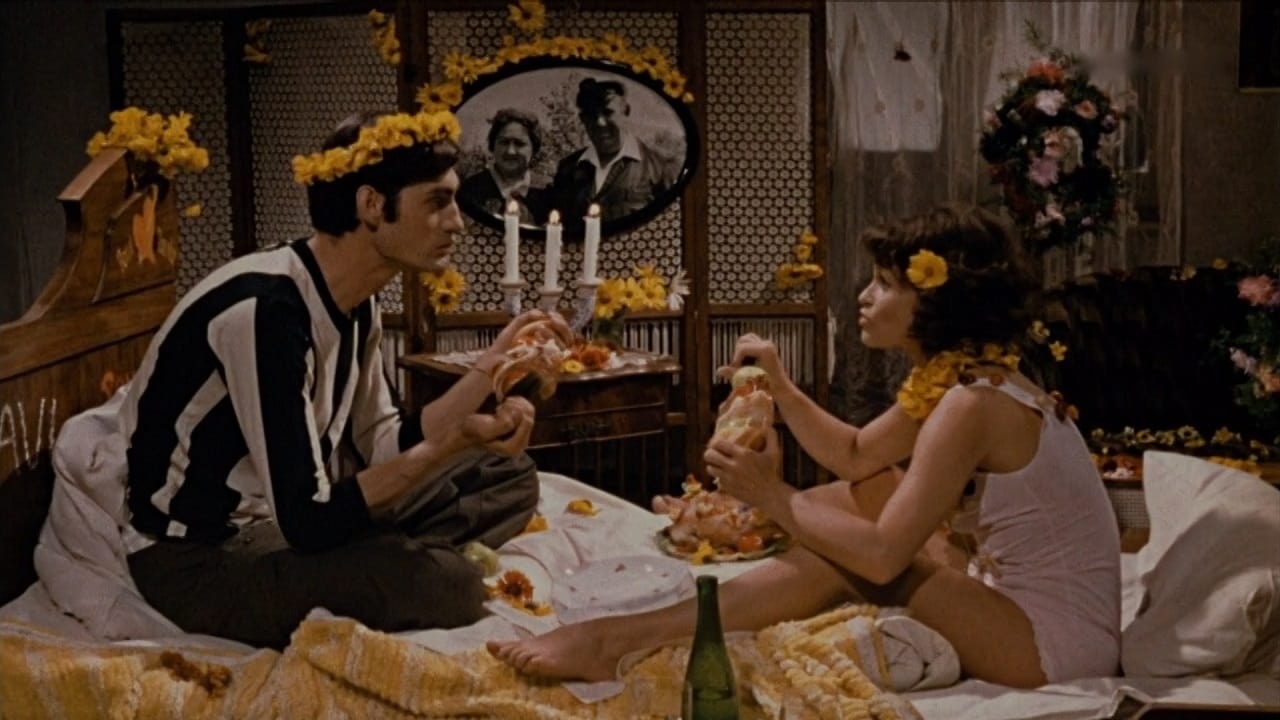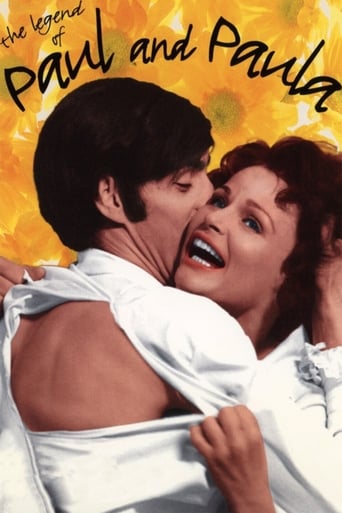Konterr
Brilliant and touching
Grimossfer
Clever and entertaining enough to recommend even to members of the 1%
Brendon Jones
It’s fine. It's literally the definition of a fine movie. You’ve seen it before, you know every beat and outcome before the characters even do. Only question is how much escapism you’re looking for.
Taha Avalos
The best films of this genre always show a path and provide a takeaway for being a better person.
Karl Self
Die Legende von Paul und Paula captures the spirit of the changes and upheavals of the late 1960ies / early 1970ies upheaval like no other film. Outstanding acting and the on-screen chemistry between Angelica Domröse and Winfried Glatzeder (basically they're the Brangelina of early 1970ies East Germany) make up for the movie's slow and somewhat inane first third, and some dated flourishes such as the Sergeant Pepper-style scene on the barge. The movie manages to convey that the GDR wasn't the worker's paradise many like to remember it as, without ever being in-your-face type of critical.Unlike some reviewers have hinted, the movie was never banned in the GDR, although it can't have been popular with the party big whigs. In fact it was even the most popular homegrown movie on the other side of the wall.
Red-125
"Die Legende von Paul und Paula" (1973), co-written and directed by Heiner Carow, is a famous film in Germany. The story seems tame enough now--a young woman is dissatisfied with her life and takes active steps to improve it.Angelica Domröse plays Paula, a single mother who has a dead-end job and no social life. Winfried Glatzeder portrays Paul, who is unhappily married and is drawn to the free-spirited Paula. (Glatzeder has been called East Germany's Jean-Paul Belmondo. He didn't look much like Belmondo, and wouldn't have struck me as leading man material. However, I don't know enough about East German cinema to be aware of his competition.)I've been told that the reason for this film's popularity in East Germany was because it contained subtle criticism of the regime, as well as depicting some PG-13 sex. I know East German films were subject to strict censorship, and, as in any similar regime, directors inserted criticisms in ways that were necessarily very indirect and symbolic.The problem is that this movie only works if you can think of how you would have viewed it in East Berlin in 1973. I don't believe it's strong enough to succeed on its own merits in 2006.
Barboelsch
It's kind of weird. Angelica Domröse speaks in the movie of a Banana and why it's bent, yet she as an actress has probably never seen one. Also her parents most likely chose her name 'Angelica' (note: the name is spelt 'Angelika' in any German-speaking country) to mock the Soviet system and give credit to the American way of life. Just like pretty much anyone else in the GDR (note: if ever you meet a girl in Europe named 'Doreen', 'Melissa' or 'Mandy', it's pretty safe to say that she's from East Germany).Pretty much all of the home appliances shown are authentic, yet they had to introduce coffee and cosmetics (which didn't really exist in the GDR at that time) to make it suitable for the political demagogues. Imagine it: the fact that there is a sentence in English ("excuse me, only one glass for you") could have led to a total ban of the entire movie.What else is there to say? Try to understand the lyrics of the Band 'Puhdys' featured manifold in this flick and the in-between-the-lines-messages and how this was important to get thoughts of freedom past the GDR's government's census.Well you guys probably don't and will never understand what kind of fruit GDR's socialism sprouted, but watching 'Paul and Paula' could theoretically help you get at least a glimpse.
andre-71
This picture, which has been shown in East Germany for only a week until political censors understood its impact on the people, is a very realistic East German view of life in post war East Berlin. It's mainly about the romance of Paul, a privileged but unhappy secret service agent, and Paula, an underprivileged and single girl with children. Since it is one of the very few movies which portraits honest details of real life in East Berlin at that time, it now serves as a reminder of emotions and feelings for a lot of East Germans. Despite the heavy use of symbolism (pretty old houses are blown away for the construction of uniform socialist buildings) it still doesn't draw a too pessimistic picture and leaves space for dreams and hope. I really love this movie, and I would recommend it to anyone who wants to catch a glimpse idea of how life was at that time in a socialistic system. The film is available with English subtitles which gives foreigners the chance to understand it, too.

